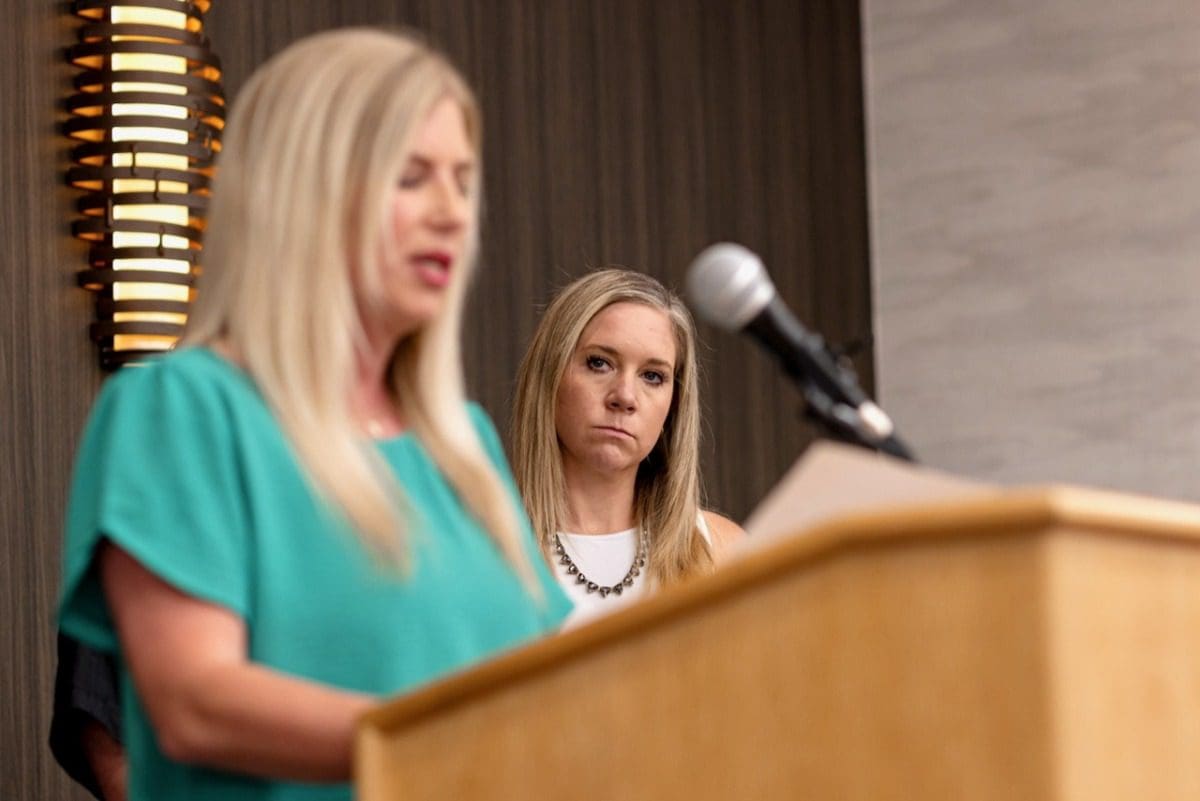This story was originally published by the Courier DFW.
A controversial bill passed by the Texas Senate has sparked intense debate over its potential implications for women seeking abortions. Senate Bill 2880, introduced in late April, could lead to criminal charges against women who obtain abortions, even if they travel to another state to do so.
During a Senate debate on April 30, Sen. Carol Alvarado, a Houston Democrat, expressed concerns about the bill’s incorporation of a 1925 abortion law. “The most egregious point of SB 2880 is that it quietly revives Texas’s pre-Roe abortion ban by explicitly incorporating the 1925 law into the bill’s definition of criminal abortion law,” Alvarado stated. She warned that this provision could criminalize women seeking out-of-state abortions and those assisting them.
The 1925 ban, referenced twice in SB 2880, does not exclude women from prosecution and includes a clause criminalizing “furnishing the means” for an abortion, which Alvarado argues could target those aiding abortion-related travel. This law, if enforced, could have affected the 35,000 Texas women who traveled out of state for abortions in 2023.
Breaking the 1925 abortion ban carries a punishment of two to five years in prison, as outlined in the current statutes. During a hearing for a similar House bill, Texas attorney Elizabeth Myers highlighted the potential ramifications of SB 2880. “By explicitly referencing and defining Texas’s criminal abortion laws to include what has been called the 1925 ban, SB 2880 and (its companion House Bill) HB 5510 potentially re-animates a century-old abortion law that is currently void and unenforceable,” Myers testified.
Attorney General Ken Paxton has previously indicated support for enforcing pre-Roe abortion statutes in Texas, suggesting these laws are once again valid following the overturning of Roe v. Wade.
1925 Abortion Ban May Be the End Goal
The debate over SB 2880 follows the passage of the “Life of the Mother Act” (SB 31), which aims to clarify when abortions can be performed to save a patient’s life. This bill passed unanimously in the Texas Senate, with support from both parties.
Rep. Donna Howard, an Austin Democrat, expressed her tentative support for SB 31, citing its potential to resolve confusion among healthcare providers regarding legal abortions during emergencies. However, Howard noted that SB 31 does not address issues like rape, incest, or fatal fetal abnormalities.
Since the enactment of the “Texas Heartbeat Act” in 2021, Texas has experienced significant increases in maternal and infant mortality rates, as well as deadly sepsis cases among pregnant women. Howard remarked on the necessity of SB 31 despite its limitations, stating, “We can’t let the perfect get in the way of the good…if this allows me to save the lives of Texas moms, I’m going to do that.”
The inclusion of the 1925 abortion law in SB 2880 has drawn criticism from advocates like Amanda Zurawski, lead plaintiff in the Zurawski v. Texas lawsuit. Zurawski expressed relief that SB 31 was amended to clarify that it was not intended to use the 1925 ban for prosecuting pregnant women.
Despite amendments to SB 31, Sen. Carol Alvarado criticized the persistence of the 1925 ban in SB 2880, calling it a “backdoor effort” to fully reinstate the old law. Sen. Sarah Eckhardt, a Democrat from Austin, described the changes in SB 31 as “a tiny step forward” followed by “a staggering hurdle backwards.”
What Looms if the Texas Legislature Passes SB 2880?
If enacted, SB 2880 could lead to the prosecution of women obtaining abortions out of state or using abortion medication. The bill also allows private citizens nationwide to sue anyone suspected of helping a Texas woman seek an abortion elsewhere.
The legislation targets manufacturers and distributors of abortion pills, as well as out-of-state doctors prescribing them. Sen. Sarah Eckhardt criticized the bill for isolating pregnant women and threatening those offering support, while Sen. Molly Cook urged lawmakers to focus on making pregnancy safer in Texas.
Blake Rocap of Avow, an abortion access advocacy group, warned that the bill’s reference to the 1925 ban indicates the anti-abortion movement’s broader agenda. Rocap cautioned that the civil bounty provision could empower “ex-abusive partners” seeking control over pregnant Texans.






